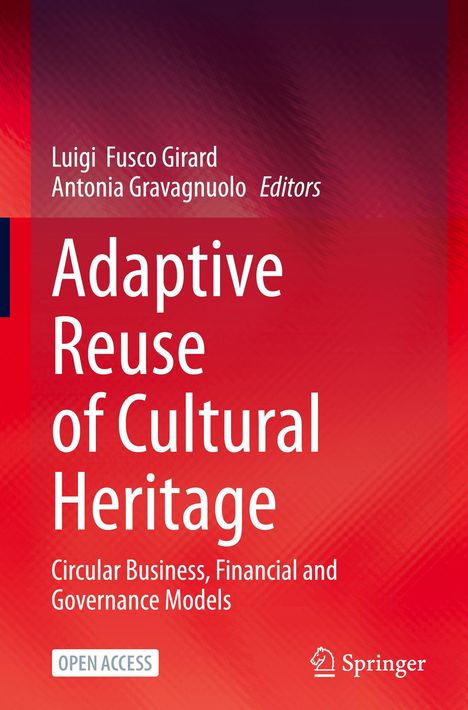Adaptive Reuse of Cultural Heritage, Gebunden
Adaptive Reuse of Cultural Heritage
- Circular Business, Financial and Governance Models
(soweit verfügbar beim Lieferanten)
- Herausgeber:
- Antonia Gravagnuolo, Luigi Fusco Girard
- Verlag:
- Springer International Publishing, 10/2024
- Einband:
- Gebunden, HC runder Rücken kaschiert
- Sprache:
- Englisch
- ISBN-13:
- 9783031676277
- Artikelnummer:
- 12015470
- Umfang:
- 600 Seiten
- Gewicht:
- 1057 g
- Maße:
- 241 x 160 mm
- Stärke:
- 38 mm
- Erscheinungstermin:
- 13.10.2024
- Hinweis
-
Achtung: Artikel ist nicht in deutscher Sprache!
Klappentext
This open access book addresses the gap in existing knowledge on cultural heritage from a circular economy and sustainable development perspective for cities. It introduces innovative economic, environmental and governance models and evaluation tools tested and validated for adaptive reuse within the ¿CLIC - Circular models Leveraging Investments in Cultural Heritage Adaptive Reuse¿ project funded by the European Horizon 2020 Research & Innovation Action Program. The CLIC project is a trans-disciplinary research project bringing together expertise from disciplines such as heritage studies, regeneration and urban development, business management, economics, ecology and social sciences.
The research covered in this book, responds to the European Societal Challenge 5 'Climate action, environment, resource efficiency and raw materials', aimed at achieving resource efficient and climate change resilient economy and society through systemic innovation. The CLIC project also unlocks public and private investments in solutions for a more resource efficient, greener and more competitive economy as a key part of smart, inclusive and sustainable growth strategy for Europe and worldwide. This book is fundamental key reading for scholars, professionals and policy makers, demonstrating how the adaptive reuse of cultural heritage, in a systemic perspective, has the potential to stimulate growth, sustainable development, social regeneration, welfare, jobs, income, and livability of urban / territorial settings: to implement the circular economy model. It also provides innovative models and a circular toolkit for financing, reusing and managing cultural heritage based on research outcomes and implementation of experimental models in four pilot European territories covered as case studies.


